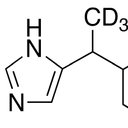Ageratina adenophora induces mice hepatotoxicity via ROS-NLRP3-mediated pyroptosis.
Keywords
Abstract
Increasing evidences have demonstrated that Ageratina adenophora (A. adenophora) can cause hepatotoxicity of animals. Liver is an important site in immune regulation and inflammatory responses. However, the information about hepatotoxicity induced by A. adenophora in relation to inflammation is still finite. To investigate the underlying mechanism, we conducted animal experiments with different dosage of A. adenophora. Mice were randomly divided into 4 groups and administrated with 0%, 10%, 20% and 30% levels of A. adenophora pallet diet in control, group A, B and C, respectively. The results showed that A. adenophora caused hepatotoxicity as revealed by increasing alkaline phosphatase, alanine aminotransferase, aspartate aminotransferase. Then, the reactive oxygen species (ROS) levels were shown to be elicited by A. adenophora through flow cytometry assay in a dose-dependent manner. Furthermore, pyroptosis was activated by A. adenophora, which was characterized by increasing protein and mRNA levels of caspase-1, gasdermin D and interleukin-1β. Notably, ROS down-stream factors, including nod-like receptor inflammasome protein 3 and nuclear factor-κB, were also activated by A. adenophora. These data demonstrated that A. adenophora caused liver inflammatory injury and induced hepatocyte pyroptosis by activating NLRP3 inflammasome, which was triggered by elevating ROS production levels. This research might provide new insights into the mechanism of hepatotoxicity induced by A. adenophora.



